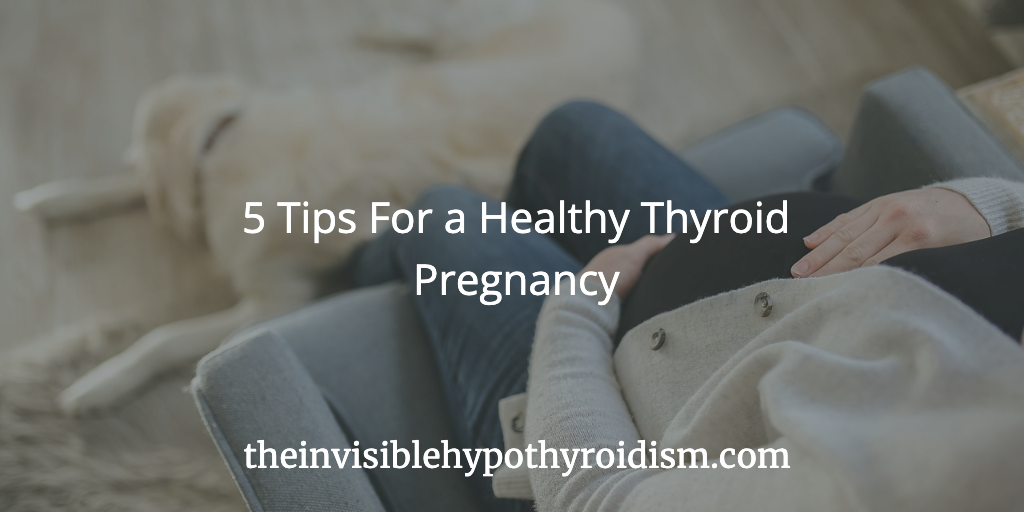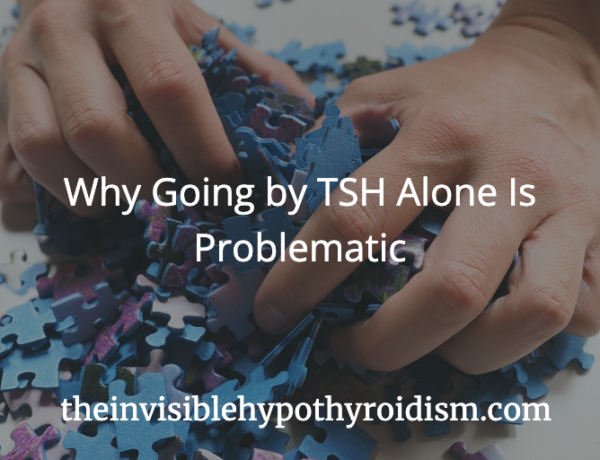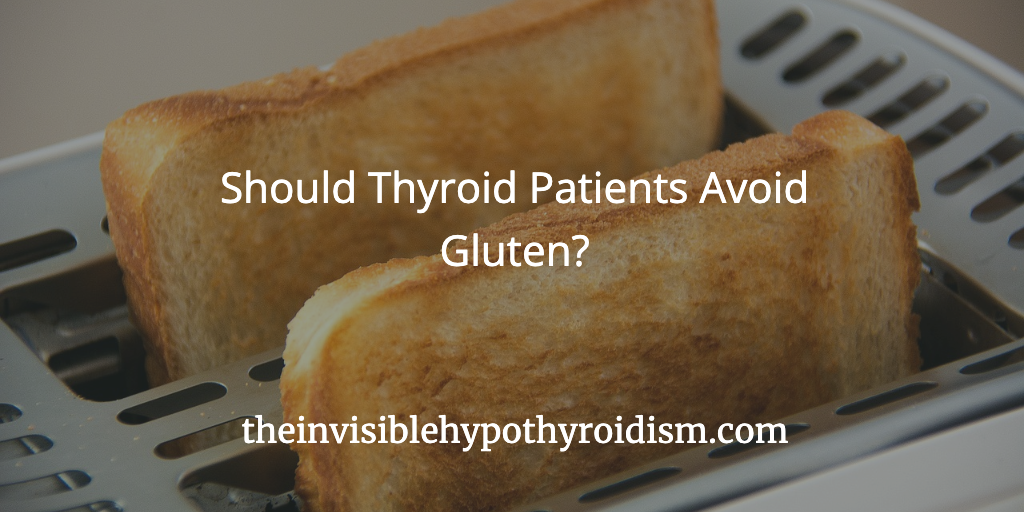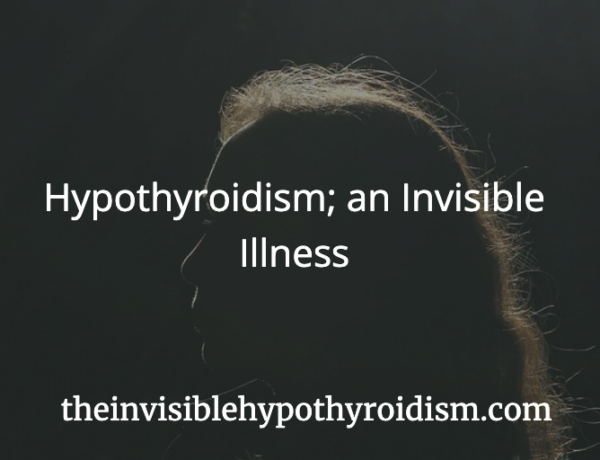I often hear from fellow thyroid patients with hypothyroidism and Hashimoto’s who want to know what they can do to ensure they have a healthy pregnancy and good chance of conceiving a child.
I have covered what I did personally to optimise conceiving with Hashimoto’s and hypothyroidism in my book. Dr. Brittany Henderson has covered her top five suggestions below.
Written by Dr. Brittany Henderson, MD, ECNU
Hashimoto’s Disease and Successful Pregnancy
Did you know that women with Hashimoto’s Disease have significantly more fertility issues than those without autoimmune thyroid disease? In fact, a diagnosis of Hashimoto’s Disease leads to 35% fewer live births compared to mothers with normally functioning thyroid glands. [1]
Unfortunately, the risk for miscarriage also increases with autoimmune thyroid disease. Despite these unflattering statistics, having a successful and healthy pregnancy with Hashimoto’s Disease is common and very possible! I have had many patients who have been told that their fertility plans are forever doomed due to autoimmune thyroid disease, and that is just not true!
If you are contemplating pregnancy now or the future, here are the top things 5 you need to know.
Related Article: Why It’s Important to Know if You Have Hashimoto’s
1. Before attempting pregnancy, optimise your thyroid levels.
Going into a pregnancy, it is of utmost importance to ensure that all of your thyroid levels are perfect. Work with a thyroid doctor to ensure that your TSH is below 2.5 uIU/ml(the upper limit acceptable by the American College of Obstetrics and Gynecology). Ideally your TSH should be around 1 uIU/mL. TSH is important to be optimised because levels that are too low (below 0.1 uIU/mL) and levels that are too high (over 4.5 mIU/mL) have been clearly linked to miscarriage, preeclampsia, and premature labor.
Additionally, TSH and T3 are two hormones necessary for proper implantation of the embryo into the uterine wall. The most important thyroid level in pregnancy is your free T4. In the first 10 weeks of pregnancy, the foetus doesn’t have a thyroid gland and the only thyroid hormone that crosses the placenta during development is T4 (not T3)! Therefore, whether using T4-only preparations, natural desiccated thyroid (NDT) or other combination T4/T3 products, it is critical to target a T4 level in the middle to upper 1/3 of the normal range.
Read about thyroid medication options here.
2. Reduce your thyroid antibodies.
This doesn’t necessarily mean that you must get your antibodies into full remission before attempting pregnancy, but reducing your thyroid antibodies to as low as possible is important.
Antibodies can decrease after reducing food immune triggers (gluten-free, dairy-free, sugar-free, or by my preferred method of implementing personalised food trigger recommendations), treating underlying infections, optimising gut behaviour (with probiotics, prebiotics, and healthy foods), and/or by initiating a good anti-inflammatory and anti-oxidant vitamin regimen to help support a healthy immune system response.
The quieter your immune system response pre-pregnancy, the more likely that your immune system will allow successful embryo implantation into the uterine wall without risk for premature miscarriage (because of the overactive immune system attacking and/or killing off the embryo).
If you have stimulating antibodies (as some Hashimoto’s patients do), it is important to watch for abnormal foetal growth during pregnancy and evaluate for foetal goitre as the pregnancy progresses. After pregnancy, many Hashimoto’s patients notice an increase in their auto-antibodies. This is a typical response of the immune system after delivery and antibodies need to be closely monitored with your physician postpartum.
3. Normalise your menstrual cycles.
A successful meeting of the egg and sperm is much more likely to happen if your menstrual cycle is as healthy as possible. The menstrual cycle consists of a follicular phase, an ovulation phase, and a luteal phase. In order for these phases to progress like clockwork, your oestrogen, progesterone, and pituitary hormones (LH and FSH) must work in perfect synchronicity. But did you know that if your thyroid hormones are not perfectly in line, they can also affect the natural rhythm of your menstrual cycle?
The best ways to normalise your cycles are as follows:
- Optimise your thyroid levels (see point 1)
- Eat a diet low in processed foods, carbohydrates and sugar
- Maintain a healthy weight
- Reduce stress
- Maintain at least 7-8 hours a night of good quality sleep
- Avoid exposure to phytoestrogens in cosmetics and beauty products high (look for paraben-free), essential oils like tea tree oil or lavender, and/or exposure to any natural or prescription progesterone products like wild yam cream, unless otherwise advised by your physician.
Because thyroid hormone affects your menstrual hormones, it may also be important to check your day 21 progesterone level to ensure adequate luteal phase response and ability of your body to sustain a healthy pregnancy. This is especially important for women who have had a previous early miscarriage or have had recurrent miscarriages.
4. Optimise your vaginal and endometrial microbiome.
Did you know that your uterine environment is not sterile? In fact, it is full of bacteria that work similarly to the bacteria that line your gut and comprise your gut microbiome. The female reproductive tract microbiome (something I refer to as the womb-biome) needs to be optimised to maintain a healthy amount of mucus production lining the endometrium (or the uterine lining). Too much mucin production can actually prevent the fertilised embryo from implanting. Too little mucin can contribute to an overactive immune response to the embryo implanting and early miscarriage.
Following the Goldilocks Rule, the mucus lining needs to be just right to host the growing foetus. Typical Lactobacillus and Bifidobacterium probiotics taken orally can positively affect the vaginal microbiome, but vaginal suppositories are also available. Pharmaceutical companies are currently developing vaginal probiotics to address this issue.
5. When you get a positive pregnancy test, call your doctor.
Once your have a positive pregnancy test (Hooray!), your thyroid doctor should be the second person you call after your partner. Because the foetus doesn’t have its own thyroid gland in the first ten weeks of gestation, getting your levels right in those first couple weeks is most critical.
Most of the time, if you have followed point 1 and optimised your thyroid regimen going into pregnancy, your levels will look just fine once pregnant and no dose adjustment will be needed. As you gain weight and progress through pregnancy, it is very typical to increase your dosage of medicine by 130-150% of your starting dose. Likewise, after pregnancy your medicine will return to your pre-pregnancy dose. As a thyroid doctor, I recommend following labs every 6-8 weeks during pregnancy or at least once a trimester.
Also, don’t forget to space your prenatal vitamin at least four hours from your thyroid medicine or, as I tell my patients, at the opposite end of the day.
A seamless and successful pregnancy in Hashimoto’s Disease and hypothyroidism is very possible. Knowledge is power and knowing the above 5 tips is of utmost importance prior to attempting pregnancy.
Please pass this article along to your friends and family attempting pregnancy with hypothyroidism!
References:
[1] https://www.thyroid.org/patient-thyroid-information/ct-for-patients/october-2016/vol-9-issue-10-p-9-10/
By Dr. Brittany Henderson, MD, ECNU
Related post: 13 Things I Did to Have a Healthy Pregnancy With Hashimoto’s and Hypothyroidism
Brittany Henderson, MD, ECNU is board-certified in internal medicine and endocrinology, with advanced training in thyroid disorders, including Hashimoto’s thyroiditis, Graves Disease, thyroid nodules, and thyroid cancer.
She desires to improve quality of life for those living with thyroid disease both through novel research and medical guidance. For patients living with Hashimoto’s disease, she believes that knowledge is power. In order to get accurate thyroid information into the hands of patients (and providers alike), she has recently written her first book “What You Must Know About Hashimoto’s Disease: Restoring Thyroid Health Through Conventional and Complementary Medicine”.
Her clinical practice is dedicated to patients with thyroid disease. She specialises in autoimmune thyroid disease, thyroid nodules, thyroid cancer, ethanol ablation, and advanced minimally invasive techniques. In addition to using a mainstream medical approach, Dr. Henderson also uses complementary medicine to explore underlying root causes of thyroid disease. Her clinical practice is located in sunny Charleston, South Carolina and is called The Charleston Thyroid Center.
If you would like to submit a guest post, whether you’re a thyroid patient, doctor or anyone else, please get in contact.
You can click on the hyperlinks in the above post to learn more and see references to information given.
See also:

The Positive Thyroid Pregnancy Book: Your Essential Guide to Navigating Fertility, Pregnancy & Postpartum Wellness With Hypothyroidism and Hashimoto’s which covers Rachel’s full two pregnancies with hypothyroidism and Hashimoto’s, on Levothyroxine and Armour Thyroid NDT and everything YOU need to know for the best start for you and your baby.





